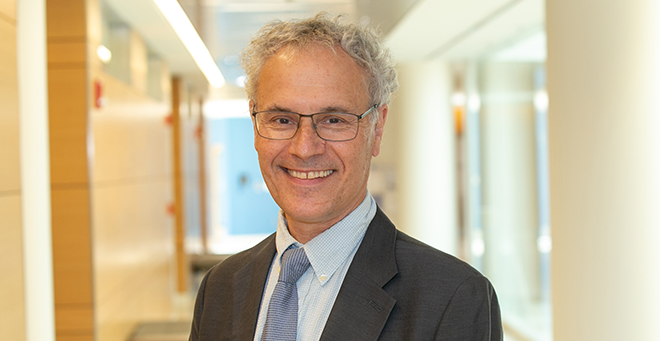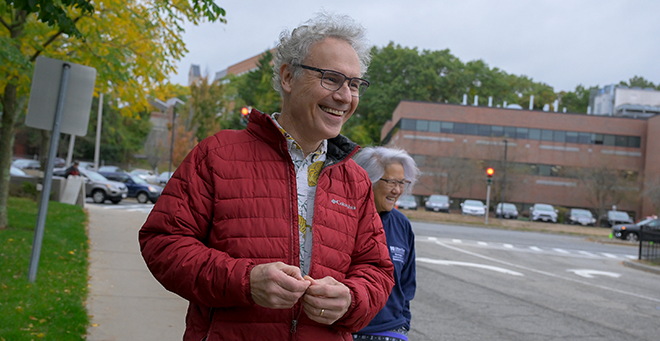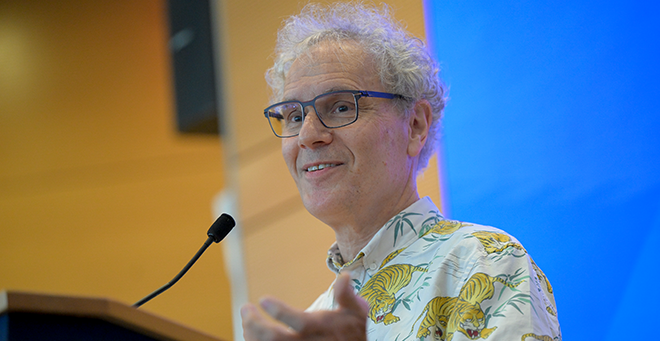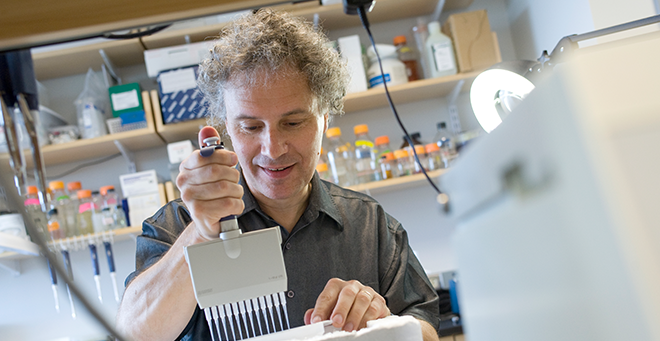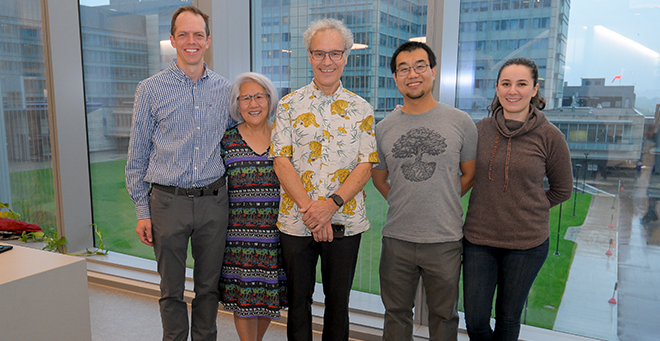
Starry-eyed graduate students in the Ambros lab at UMass Chan Medical School gathered on Monday, Oct. 7, to witness their mentor celebrate every scientist’s dream: winning the Nobel Prize.
Victor R. Ambros, PhD, the Silverman Chair in Natural Sciences and professor of molecular medicine, and Gary Ruvkun, PhD, professor at Harvard Medical School, were awarded the Nobel Prize in Physiology or Medicine for their discovery of microRNA, the uniquely short, single-stranded RNA molecules that are now understood to be instrumental in post-transcriptional gene regulation.
“My mentor winning the Nobel Prize is so exciting for a student like me,” said Reyyan Bulut, a PhD candidate in the Ambros lab who researched miRNA at Sabanci University in Istanbul, Turkey, before relocating to work alongside Ambros. “I would see YouTube interviews of Victor, but I never thought I’d be in his lab. When I met him as a first-year student, I was shaking. It’s a dream come true to be in his lab.”
UMass Chan distinguished Professor Craig C. Mello, PhD, who received the Nobel Prize in Physiology or Medicine for his discovery of RNA interference or RNAi in 2006, finished his PhD at Harvard University in Ambros’ lab.
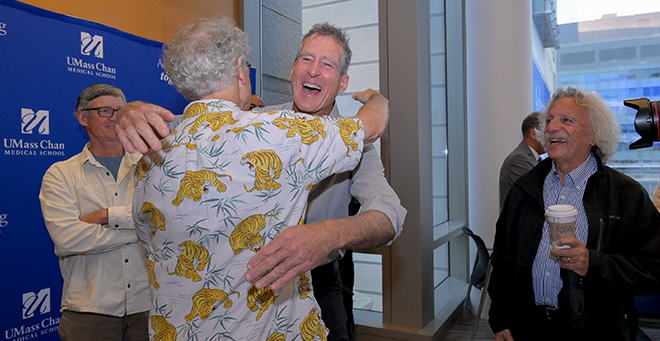
“Victor’s a tremendous mentor. Without his help, I don’t think I’d be here,” said Dr. Mello, Howard Hughes Medical Institute Investigator, the Blais University Chair in Molecular Medicine and distinguished professor of RNA therapeutics and molecular medicine. “He is really too humble and should take credit for modern therapeutics, because they use his mechanism. Therapeutics made today are short pieces of genetic information, just like the one he discovered first.”
Dr. Ambros and his wife, Rosalind “Candy” Lee, senior scientist and first author on the 1993 Cell paper cited by the Nobel Committee, shared champagne with students and colleagues to celebrate the win.
“Victor and I’ve been married almost 50 years—we’ve been working together for nearly 40 years,” said Lee. “The Nobel means so much to a lot of people, and especially for all of our lab members. UMass Chan has been a spectacular place for us to be.”
“I benefit from the people who came before me—my parents and mentors along the way,” said Ambros, who joined the UMass Chan faculty in 2007 and co-founded UMass Chan’s RNA Therapeutics Institute in 2009. “Often, in an institution like this where everyone seems amazing, you wonder what am I doing here? I don’t have to be the smartest person in the room. I just have to be in the right room.”
Ye “Oscar” Duan, PhD’23, a student alum of the Ambros lab, continues to collaborate with Ambros while working as a postdoctoral researcher at Harvard University. Dr. Duan studied virology such as rabies and influenza in China before taking a class with Ambros at UMass Chan that changed the trajectory of his career. He remembers being captivated by Ambros’ research on C. elegans, a microscopic, translucent worm.
“This research is a very big encouragement for us. Little worms can still lead to great scientific discoveries,” Duan said. “Victor is a role model for his generosity, kindness and curiosity.”
During a news conference held on the UMass Chan campus, Ambros was asked to give a message to budding scientists.
“To the science trainees and younger generation, each one of you is talented,” said Ambros. “Each one of you has something really special and important to offer. Keep up the good work and know that you are the right person for the job you’re doing. You’re going to do great things.”
